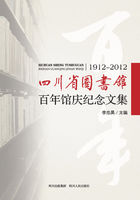Compelled further to elucidate capitalist exploitation of labour, he first represents it in a general way as based on taxes and price surcharges, thereby completely appropriating the Proudhonian "deduction" (prélèvement) , and then proceeding to explain it in detail by means of Marx's theory of surplus-labour, surplus-product and surplus-value. In this way he manages to bring about a happy reconciliation of two totally contradictory modes of outlook, by copying down both without taking his breath. And just as in philosophy he could not find enough hard words for the very Hegel whom he was so constantly exploiting and at the same time emasculating, so in the Kritische Geschichte the most baseless calumniation of Marx only serves to conceal the fact that everything in the Cursus about capital and labour which makes any sense at all is likewise an emasculated plagiarism of Marx. His ignorance, which in the Cursus puts the "large landowner" at the beginning of the history of the civilised peoples, and knows not a word of the common ownership of land in the tribal and village communities, which is the real starting-point of all history --this ignorance, at the present day almost incomprehensible, is well-nigh surpassed by the ignorance which, in the Kritische Geschichte , thinks not little of itself because of "the universal breadth of its historical survey" {2}, and of which we have given only a few deterrent examples.
In a word: first the colossal "effort" of self-admiration, of charlatan blasts on his own trumpet, of promises each surpassing the other; and then the "result" {109} -- exactly nil.
1877: Anti-Duhring -- "Socialism"
Part III: Socialism Chapter 1: Historical.
Chapter 2: Theoretical.
Chapter 3: Production.
Chapter 4: Distribution.
Chapter 5: State, Family, Education.
Part III
SOCIALISM I.
HISTORICAL W e saw in the "Introduction" *7 how the French philosophers of the eighteenth century, the forerunners of the Revolution, appealed to reason as the sole judge of all that is.
A rational government, rational society, were to be founded; everything that ran counter to eternal reason was to be remorselessly done away with.
We saw also that this eternal reason was in reality nothing but the idealised understanding of the eighteenth century citizen, just then evolving into the bourgeois. The French Revolution had realised this rational society and government. But, the new order of things, rational enough as compared with earlier conditions, turned out to be by no means absolutely rational.
The state based upon reason completely collapsed. Rousseau's Contrat Social had found its realisation in the Reign of Terror, from which the bourgeoisie, who had lost confidence in their own political capacity, had taken refuge first in the corruption of the Directorate, and, finally, under the wing of the Napoleonic despotism. [101] The promised eternal peace was turned into an endless war of conquest. The society based upon reason had fared no better. The antagonism between rich and poor, instead of dissolving into general prosperity, had become intensified by the removal of the guild and other privileges, which had to some extent bridged it over, and by the removal of the charitable institutions of the Church. The development of industry upon a capitalistic basis made poverty and misery of the working masses conditions of existence of society. The number of crimes increased from year to year. Formerly, the feudal vices had openly stalked about in broad daylight; though not eradicated, they were now at any rate thrust into the background. In their stead, the bourgeois vices, hitherto practiced in secret, began to blossom all the more luxuriantly.
Trade became to a greater and greater extent cheating. The "fraternity"of the revolutionary motto [102] was realised in the chicanery and rivalries of the battle of competition. Oppression by force was replaced by corruption; the sword, as the first social lever, by gold. The right of the first night was transferred from the feudal lords to the bourgeois manufacturers. Prostitution increased to an extent never heard of. Marriage itself remained, as before, the legally recognised form, the official cloak of prostitution, and, moreover, was supplemented by rich crops of adultery. In a word, compared with the splendid promises of the philosophers, the social and political institutions born of the "triumph of reason" were bitterly disappointing caricatures. All that was wanting was the men to formulate this disappointment and they came with the turn of the century. In 1802 Saint-Simon's Geneva letters appeared;in 1808 appeared Fourier's first work, [103] although the groundwork of his theory dated from 1799; on January 1, 1800, Robert Owen undertook the direction of New Lanark.















